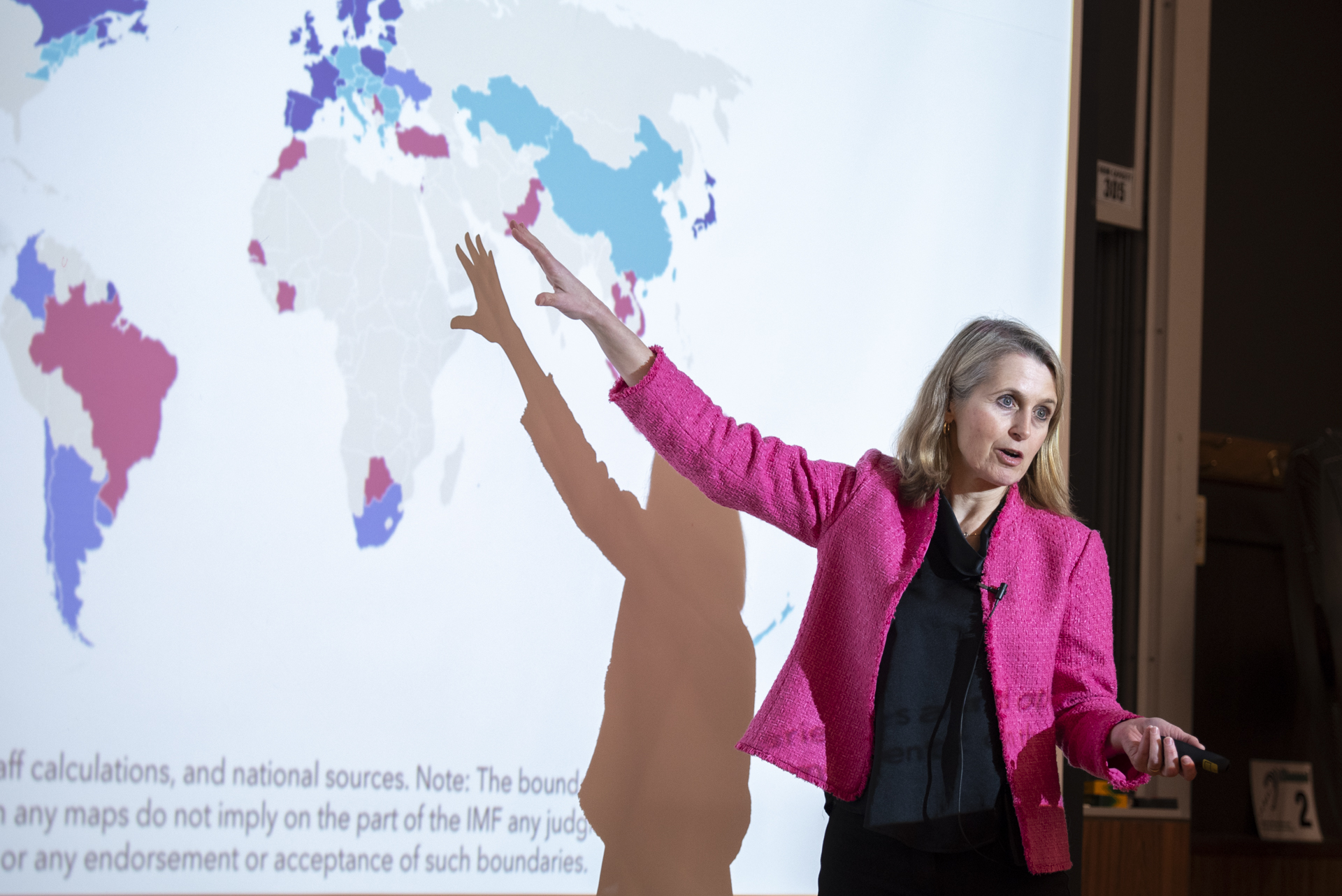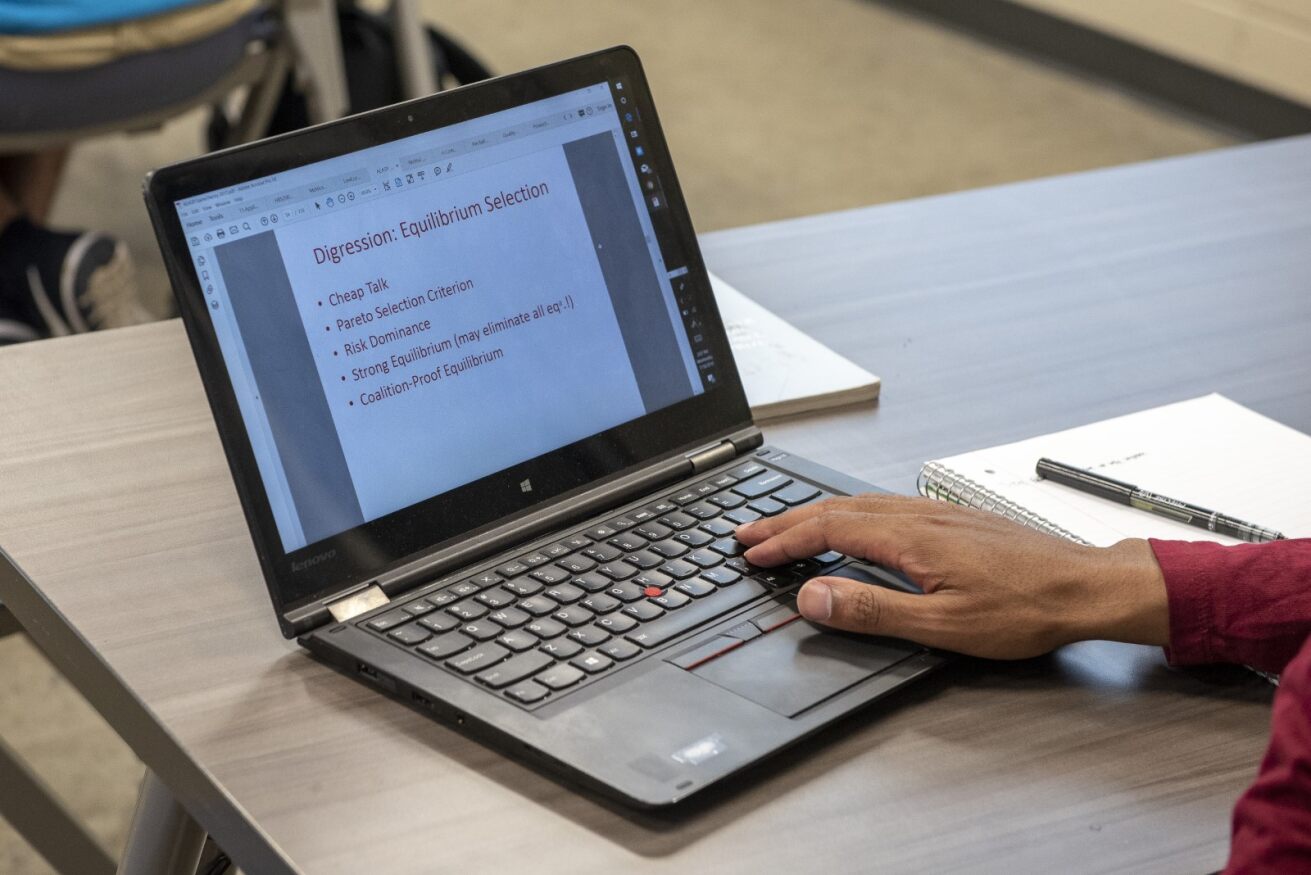
On March 6, Catherine Wolfram, Ph.D., William F. Pounds professor of energy economics and professor of applied economics at the MIT Sloan School of Management, presented a lecture on the future of U.S. climate change policy.
“Climate change is the world’s biggest coordination problem, and countries need to work together to address it,” Wolfram said. “The U.S. passed landmark climate legislation in 2022 with the Inflation Reduction Act. But the IRA, which emphasizes subsidies for clean energy production, sets the U.S. on a different path from many other countries, which are relying on carbon pricing.”
The lecture was part of an annual lecture hosted by the MSU Department of Economics, and the purpose of the series is to create an opportunity for students, faculty, staff and the public to learn from and engage with influential economists.
“While we offer students the chance to learn from our own world-class faculty, we provide students and the community with opportunities to learn from influential economists from around the world,” said Professor Steven Haider. “Climate change is a major focus at MSU and around the world. Our students are the future economists who will be guiding the nation and world, and we have a responsibility to prepare them to think critically and to lead. The exposure to a prominent economist such as Professor Wolfram is just an amazing opportunity.”
Wolfram specializes in climate change and energy economics and from March 2021 to October 2022, she served as the deputy assistant secretary for climate and energy economics at the U.S. Treasury.
“While the Inflation Reduction Act was an important step in U.S. climate change policy, on the current trajectory, we are not on track to meet our emissions reduction goal by 2030,” she said.
Her main argument is that the U.S. should introduce carbon pricing as a complement to the Inflation Reduction Act.
“Carbon pricing means that we assess a tax or fee on fossil fuel producers,” she explained. “The idea is if you make it costly to produce and to consume those things, you’ll lead to fewer and fewer emissions coming out.”
She proposes that the U.S. adopt a carbon price for three important reasons: the current impacts of climate change, participating with other countries who have implemented carbon pricing, and because the Inflation Reduction Act has paved the way.
She also sees carbon pricing as a way the government can generate money to pay down national debt and to provide relief, especially to low-income communities that would be impacted by a rise in cost of fossil fuels.
“When we’re making policies and running the numbers, we can’t just talk about the numbers -- we have to talk about the people behind the numbers,” she said.
Wolfram also had advice for the current and future economists in the room about being at the table in policy discussions. In addition to remembering the people behind the numbers, she encouraged working on communication skills and engaging with other disciplines to understand context, the bigger picture and create more integrated solutions.
“We are grateful to Professor Wolfram for sharing her research and experiences. I speak for everyone in the room when I say that I found her talk inspiring, both about our potential to address climate change and for economics to shape public policy,” Haider said.
To learn more about the MSU Department of Economics, visit econ.msu.edu.

